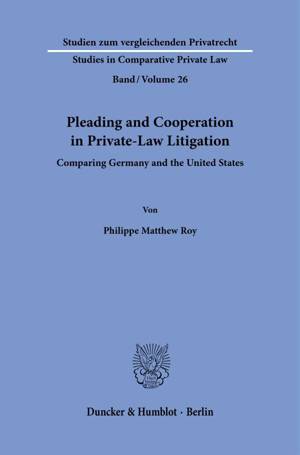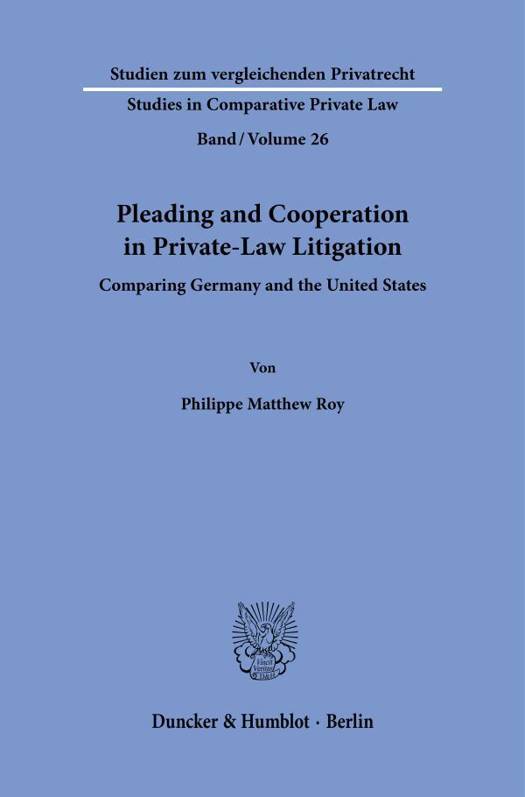
- Afhalen na 1 uur in een winkel met voorraad
- Gratis thuislevering in België vanaf € 30
- Ruim aanbod met 7 miljoen producten
- Afhalen na 1 uur in een winkel met voorraad
- Gratis thuislevering in België vanaf € 30
- Ruim aanbod met 7 miljoen producten
Zoeken
Pleading and Cooperation in Private-Law Litigation
Comparing Germany and the United States
Philippe Matthew Roy
Paperback | Engels | Studien zum vergleichenden Privatrecht - Studies in Comparative Private Law | nr. 26
€ 78,95
+ 157 punten
Omschrijving
The book compares inter alia how civil courts in the United States and Germany balance the burdens on the plaintiff and defendant during the pleading and information-disclosure stages by focusing on pleading requirements, accommodations made to the plaintiff to account for information asymmetry and an examination of testimonial privileges. The initial pleading stage of a civil case addresses important threshold questions before the court proceeds to collecting and evaluating evidence. Access to evidence in the United States through discovery procedures is much broader than in Germany and the pleading standard in federal courts was modified due to criticism of costly and invasive discovery. But pleading that requires more than notice to the defendant imposes a higher burden on the plaintiff. The degree to which civil procedure demands cooperation from civil defendants in the form of document and testimonial disclosure likewise reflects broader value judgments about the appropriate burdens on the parties in litigation. Using the ideal types of legal formalism and legal realism, the author examines the jurisprudential underpinnings for differences between German and U.S. approaches to pleading and information-disclosure. The author concludes that important procedural principles and longstanding practices account for significant differences in pleading and cooperation rules; these rules favor defendants in Germany while generally tending to favor plaintiffs in the United States.
Specificaties
Betrokkenen
- Auteur(s):
- Uitgeverij:
Inhoud
- Aantal bladzijden:
- 213
- Taal:
- Engels
- Reeks:
- Reeksnummer:
- nr. 26
Eigenschappen
- Productcode (EAN):
- 9783428192632
- Verschijningsdatum:
- 11/11/2024
- Uitvoering:
- Paperback
- Afmetingen:
- 157 mm x 10 mm
- Gewicht:
- 326 g

Alleen bij Standaard Boekhandel
+ 157 punten op je klantenkaart van Standaard Boekhandel
Beoordelingen
We publiceren alleen reviews die voldoen aan de voorwaarden voor reviews. Bekijk onze voorwaarden voor reviews.











